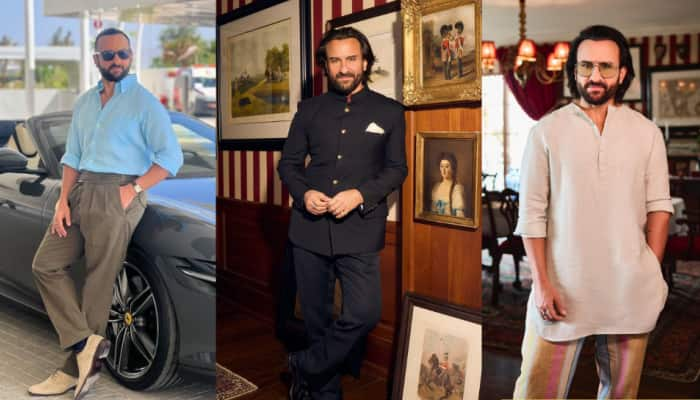Mexico rolls out its indigenous vaccine for dengue fever
Leroy said it was difficult to estimate how much the vaccine will cost in Mexico as it will depend on the distribution networks and the public vaccination program.
Trending Photos
)
Zee Media Bureau
New Delhi: Mexico is the latest addition in the list of countries that have indigenous developed vaccine to combat dengue fever. As per World Health Organisation, dengue cases have elevated by 9% in the past 20 years. Currently, the new Maxican vaccine for dengue, dubbed as Dengvaxia and manufacutred by Sanofi Pasteur, is only available in private-health care institutions. People aged nine to 45 will be able to get the shot from their physicians from Monday.
After public programs were launched in the Philippines and Brazil's state of Parana this year, the company is rolling out the vaccine in the private sector in Mexico while health authorities prepare a public immunization plan. The head of Sanofi's dengue program, Guillaume Leroy, told AFP in Mexico City that the company already has one million doses ready in the country.
Leroy said it was difficult to estimate how much the vaccine will cost in Mexico as it will depend on the distribution networks and the public vaccination program.
The mosquito-borne virus costs governments around the world $18 billion a year, Leroy said.
"We estimate that in Mexico and in other countries that the benefits will outweigh the costs of the (vaccine) intervention," he said.
The company will have a "fair policy throughout the world and affordable for health authorities."
Zika vaccine
Mexico was the first country in the world to give regulatory approval to the vaccine in December last year. Seven others followed suit, including Brazil, Costa Rica, El Salvador, Guatemala, Paraguay, Peru and the Philippines.
Sanofi is awaiting authorizations in 18 other countries.
The fast-growing disease infects as many as 400 million people every year, according to the World Health Organization (WHO), which has endorsed the vaccine.
Sanofi's research and development work took 20 years, costing more than 1.5 billion euros (US $1.7 billion).
Now, Sanofi and other pharmaceutical firms are racing to find a weapon against Zika, which like dengue is carried by the Aedes aegypti mosquito.
"Developing a vaccine against Zika will be easier after developing a vaccine against dengue," Leroy said, noting that the viruses share genetic similarities.
"All these investments (on dengue) through more than 100 collaborations worldwide allow us today to gain a lot of time on different vaccinal approaches" against Zika, he said.
Some 70 countries and territories have reported local mosquito-borne Zika transmission, with Brazil by far the hardest hit and the WHO declaring it a public health emergency.
Zika causes only mild symptoms for most people such as fever and a rash, but infected pregnant women can give birth to babies with microcephaly, a deformation marked by abnormally small brains and heads.
Vaccine concerns
Scientists had also long been stumped by dengue, which has four separate strains, forcing researchers to find a drug able to fight all of them at once.
Dengue can trigger a crippling fever, along with muscle and joint pain.
But clinical tests on 40,000 people from 15 countries found Dengvaxia can immunize two thirds of people aged nine years and older, rising to 93 per cent for the more severe form of the disease, dengue hemorrhagic fever.
It was also found to reduce the risk of hospitalization by 80 per cent.
Brazil launched a public immunization program for 500,000 people in Parana in August, while the Philippines has injected 489,000 public school children aged nine since it became in April the first country to use the vaccine.
Philippines health department spokesman Eric Tayag said authorities followed WHO recommendations, which say it should not be given to children under nine years old.
"We are tracking each child" to look for any sign of dengue or side effects, Tayag said.
Some scientists have voiced concerns about studies showing that the vaccine could give dengue to people who have never had the virus.
Scott Halstead, founder of the Pediatric Dengue Vaccine Initiative, told AFP that the WHO was "being hasty" in recommending the vaccine and that people should be tested to see if they have had dengue before being vaccinated.
"It's not ethical to give a vaccine that harms someone," Halstead said.
But Leroy noted that Dengvaxia, in addition to the WHO's green light, is getting approval from government health regulators.
"It is a great solution and the first solution because dengue did not have until now any specific medial solution to treat this illness," Leroy said, adding that Sanofi is conducting studies in Asia among younger people to see if the vaccine's reach can expand.
(With AFP inputs)
Stay informed on all the latest news, real-time breaking news updates, and follow all the important headlines in india news and world News on Zee News.
Live Tv







)
)
)
)
)
)
)
)
)
)
